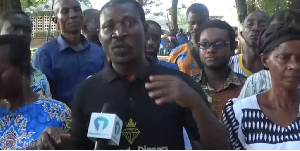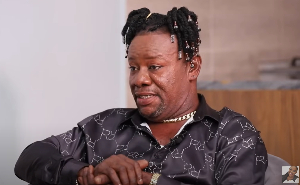The Narcotic Control Board is vigorously and continuously mapping out strategies to effectively strengthen its law enforcement mechanisms to ensure Ghana does not become a safe haven for drug trafficking.
Mr. Edmund Tei, Principal Narcotic Officer of NARCOB stated this on Thursday in a presentation on the topic, “The Narcotics and Illicit Drug Menace” at a dialogue session of the on-going regional policy fair in Sunyani.
He called for the amendment of PNDC Law 236 to put the Board in a better position to deal effectively with the drug situation in the country.
The principal narcotic officer noted that, drug trafficking ignited security concerns and could erode the country’s gains and achievements made towards socio-economic development, through the application of sanctions by the international community.
Concerted and collaborative efforts are therefore needed in the fight against the menace at both local and international levels through the assistance of donor partners, he said.
Mr Tei emphasized that, the relevant information about the harmful effects of the use of narcotics needed to be disseminated particularly to children through the community based approach.
He stressed that the fight against “cannabis”, particularly among the youth, required that the issue became of paramount interest for all and be made to take centre stage in development issues to safeguard the future of the nation.
The principal narcotic officer noted that, traffickers usually engaged the services of unemployed men and women in the illegal business and most often induced them with the prospects of trips to Europe and earn between 3,000 and 4,000 dollars.
“The most common way by which people traffic these drugs from Ghana to Europe is through ‘swallowing’, and the dangerous part of this practice is that the toxic substance can burst in their stomachs,which can either create serious health implications for them or make them lose their lives”, he said.
Mr Tei called for the allocation of more funds and resources, as well as partnership with other stakeholders to deal efficiently and effectively with the drug menace.
“Drug barons fight to gain control over territories like in Colombia. We do not want such a thing to happen in Ghana so all hands must be on deck and more efforts are required to offset this situation”, he stated.
He said the Board was considering setting up regional offices to reach out to churches, FM radio stations and mosques in educational campaigns in order to get the youth well informed about the menace.
The Reverend Dr. Augustine Owusu Addo, who presided, urged parents to ensure the proper upbringing of their children through the provision of quality education, and cautioned them against the adverse effects of globalization and modernization.
Participants who attended the dialogue session called for media sensitization and increased collaboration with stakeholders to help inculcate moral values in children, as well as mass educational campaigns to create more awareness about the menace.**
Regional News of Friday, 4 May 2012
Source: GNA
















